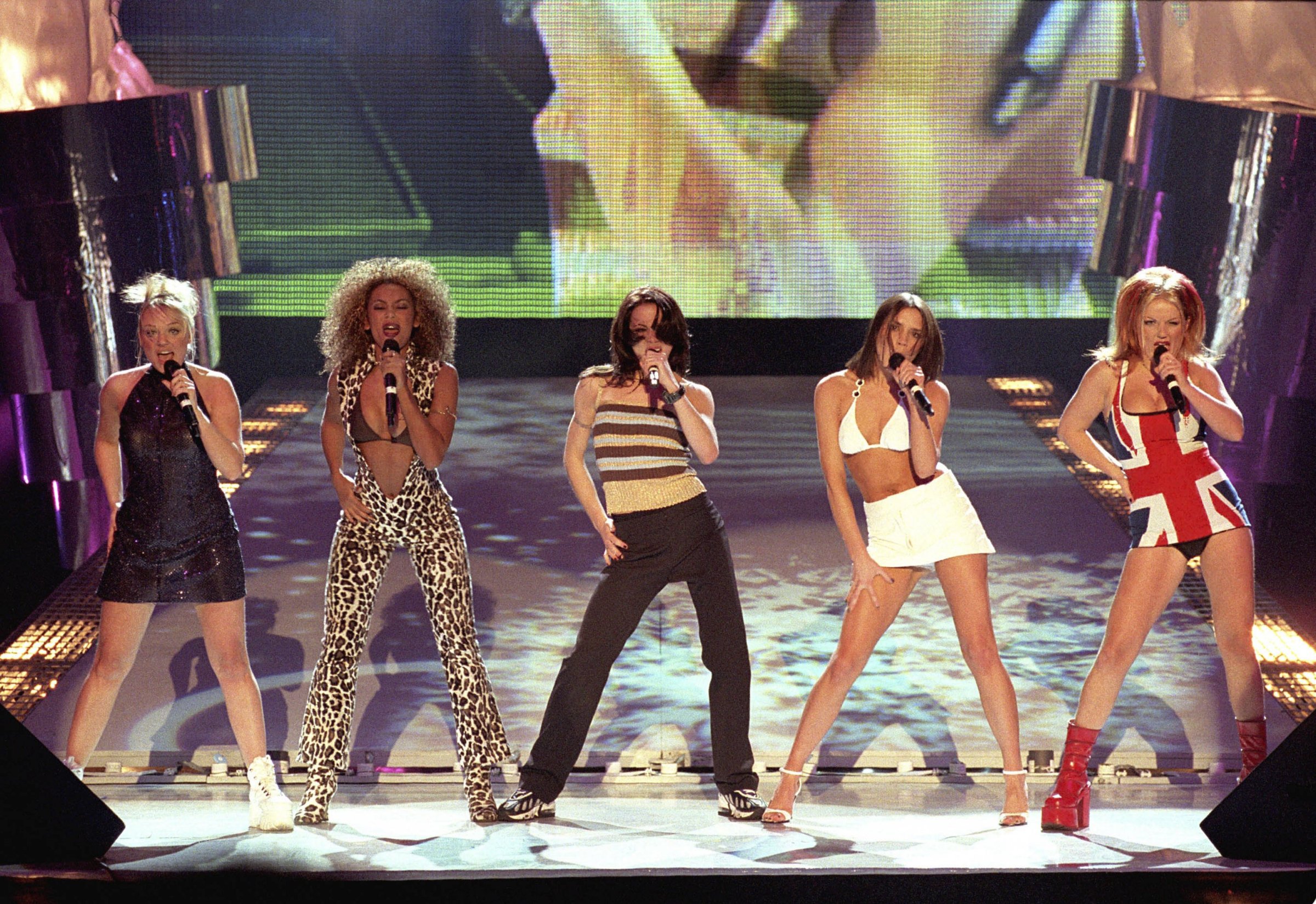
Twenty years ago, when the Spice Girls released their debut single, the anthem “Wannabe”—which was dropped in the U.K. on July 8, 1996—it quickly became clear that they had something that listeners “really really want.” The song soared to the top of the charts in 31 countries, and was at one point considered the best-selling debut single of all-time, according to Billboard.
But they didn’t just make a splash in the world of pop music. They were also arguably the most recognizable face of an important moment in the history of the U.K.: the mid-’90s celebration of youth culture that’s sometimes known as “Cool Britannia” and an attendant shift in the U.K. politics. From Charles Saatchi’s patronage of the “Young British Artists” to Britpop bands Blur and Oasis—and even an eponymous Ben & Jerry’s ice cream flavor—anything English was hip. (Case in point: Geri Halliwell’s Union Jack minidress.) As Newsweek put it in 1996, London “the coolest city on the planet,” was “back.”
By 1997, the year of “Spice Up Your Life,” Tony Blair and other proponents of “New Labour” sought to “spice up” Britain’s image after nearly two decades of Conservative Party rule by linking the Labour Party to the pop culture trend. As Rolling Stone reported, Blair had said that the Spice Girls’ “Say You’ll Be There” was one of his favorite records of 1996, and could name more members of the group than Conservative rival John Major.
After a poll rated Blair Britain’s most popular leader since World War II, a 1998 TIME feature reported that his effort to associate himself with modern British icons like the Spice Girls was part of his mission to “modernize” the nation and its politics:
The British economy is booming: the pound is up, and unemployment is down. Peace and prosperity. Who could ask for anything more? But just in case someone does, there’s Britain’s current boom in the arts. Whether it’s movies like the The Full Monty, bands like Oasis and the Spice Girls, or designers like Stella McCartney, the hottest thing going these days seems to come from what is cloyingly known as “Cool Britannia.” And while Blair admits that this artistic blossoming was under way before he took office, he and his coterie of young advisers have relentlessly, even shamelessly, courted and promoted the hip as a way of announcing to the world that Britain is changing.
Other TIME magazine articles characterized the effort as “Tony Blair’s late-’90s attempt to sex up the U.K.’s image” and reported that “he has set himself the visionary target of ‘rebranding’ Britain. Instead of enjoying this country of nice old things, he wants to create a new ‘cool Britannia.'”
Get your history fix in one place: sign up for the weekly TIME History newsletter
Wordsmiths of the 1990s, however, weren’t the ones to invent the term “Cool Britannia.” In fact, a psychedelic pop group called the Bonzo Dog Band had made the same play on “Rule Britannia” on their 1967 album Gorilla. Some sociologists and experts in media and cultural studies argued that the renewed popularity of the phrase in the mid-1990s was appropriate. After all, that 1990s moment was in some ways a throwback to ’60s-era giddiness over another cultural boom in London, which had coincided with the election of another Labour Prime Minister, Harold Wilson.
“This spring, as never before in modern times, London is switched on,” TIME had declared in an April 15, 1966, cover story about Swinging London. “Ancient elegance and new opulence are all tangled up in a dazzling blur of op and pop. The city is alive with birds (girls) and Beatles…the Rolling Stones, whose music is most in right now, reign as a new breed of royalty…In a once sedate world of faded splendor, everything new, uninhibited and kinky is blooming at the top of London life.”
But the idea of “Cool Britannia” as soft power had its skeptics. “There is a particular danger in putting ‘creative’ industries and youth culture at the centre of a government-sponsored effort to change Britain’s image,” a March 12, 1998, Economist article argued. “These are things that depend on fashion and spontaneity. But few things are less fashionable or spontaneous than a grinning politician in a suit.” Some say the optimism of “Cool Britannia” has since waned—and now more than ever it’s clear that British politics are bigger than any girl group.
Yet the buzz about a possible Spice Girls reunion tour and rumors about a reunion documentary show that at least that aspect of “Cool Britannia” won’t fall out of style anytime soon.
More Must-Reads from TIME
- Why Trump’s Message Worked on Latino Men
- What Trump’s Win Could Mean for Housing
- The 100 Must-Read Books of 2024
- Sleep Doctors Share the 1 Tip That’s Changed Their Lives
- Column: Let’s Bring Back Romance
- What It’s Like to Have Long COVID As a Kid
- FX’s Say Nothing Is the Must-Watch Political Thriller of 2024
- Merle Bombardieri Is Helping People Make the Baby Decision
Write to Olivia B. Waxman at olivia.waxman@time.com